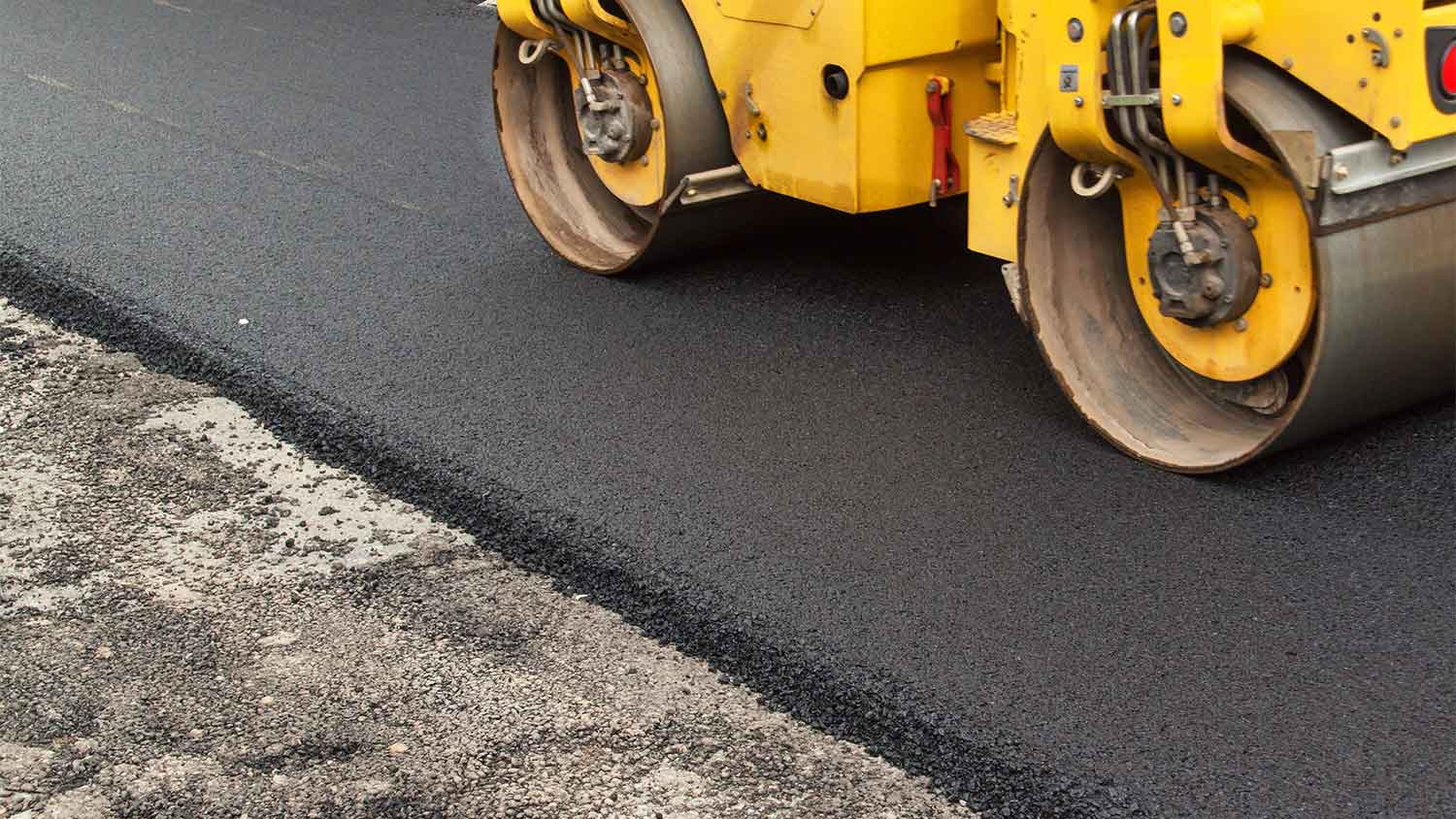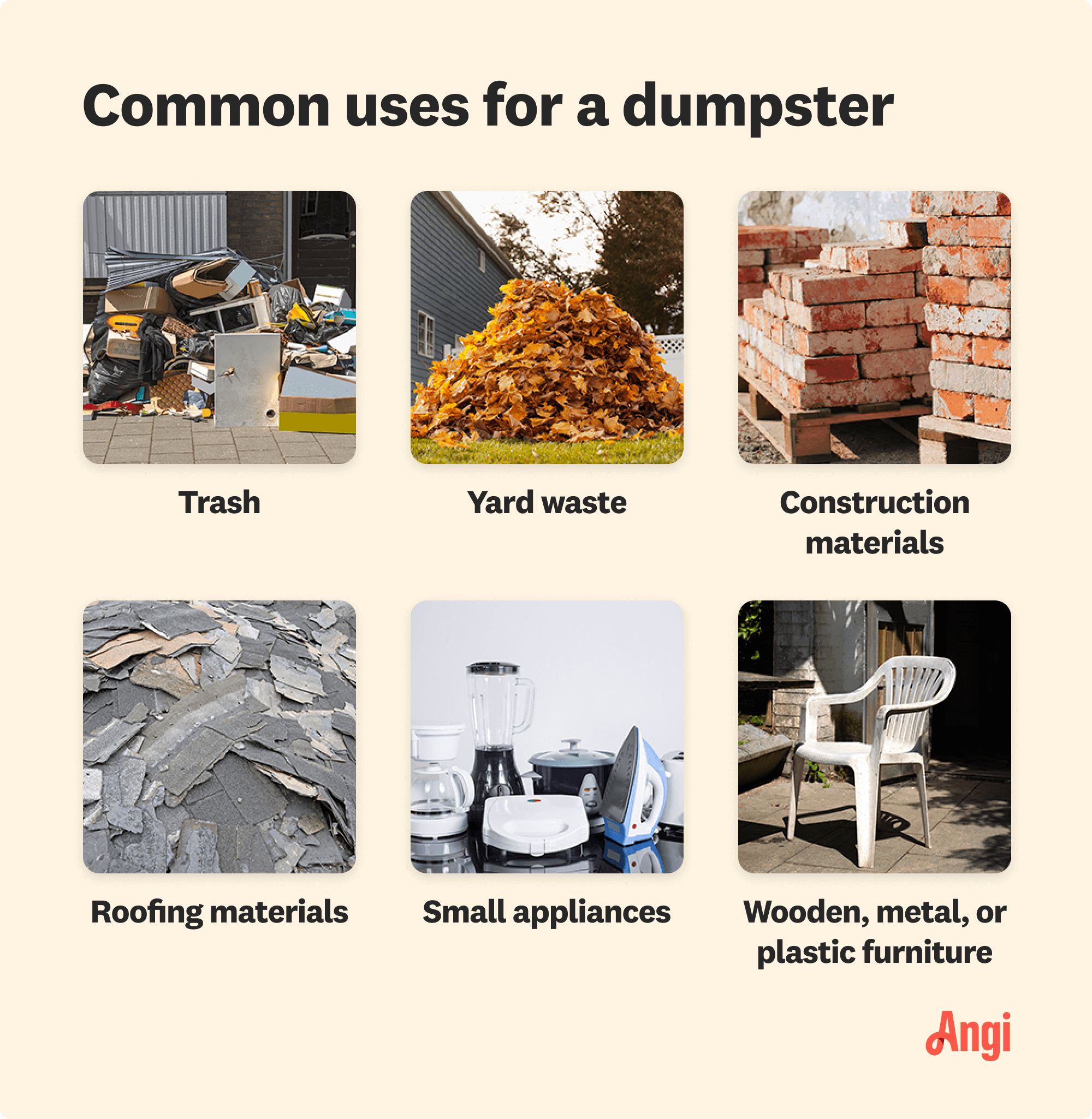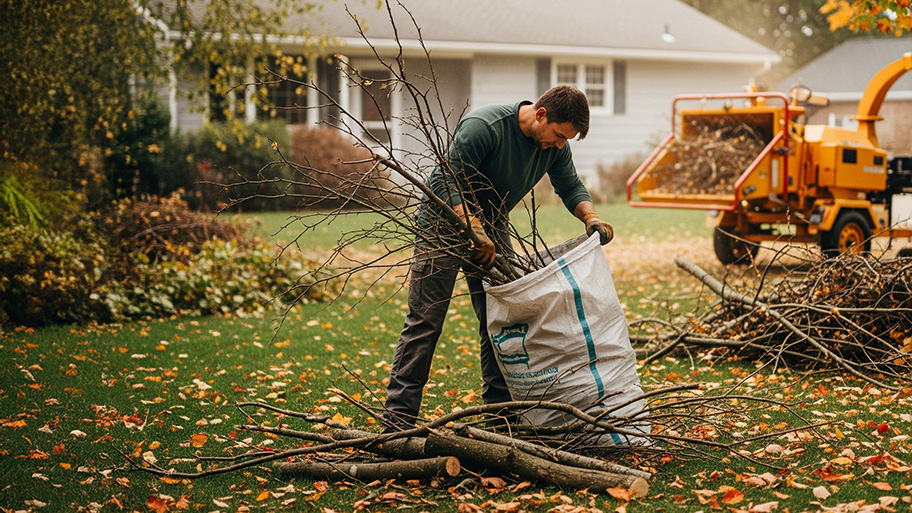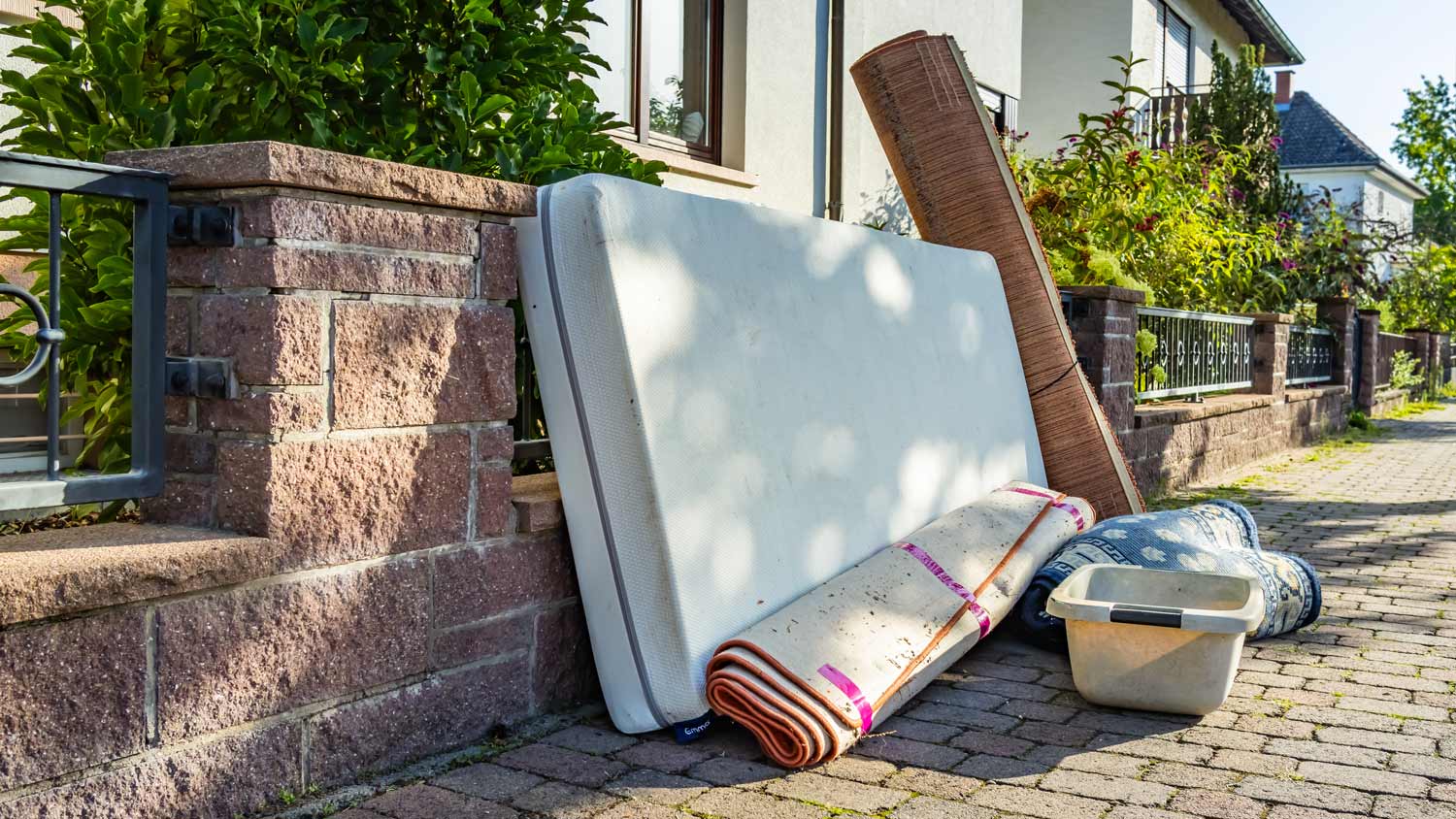
Get clear answers on oil tank removal costs, including average prices, key factors, and ways to save. Learn what impacts your project and how to budget.
Do your part by avoiding the landfill during your roofing project


Asphalt shingles are made from recyclable materials, so they don’t need to go in a landfill.
Contractors sometimes recycle shingles, but you can also pay for junk removal or a dumpster rental (which can be taken to a recycling facility).
Construction debris removal costs up to $800, and weekly dumpster rental costs up to $480.
Getting a new roof is exciting. But knowing millions of tons of recyclable shingles pile up in landfills? Not so much. The unfortunate truth is that this is exactly what happens each year. In fact, shingles account for a sizable percentage of all building-related waste. The good news is that in many U.S. states, asphalt shingles are included on the list of types of roofing shingles that can be recycled. Here's what you need to know about recycling your roof’s old asphalt shingles.
Yes, asphalt shingles are recyclable, so nearly all the old roofing material that comes off your home can go to a recycling facility instead of a landfill. Asphalt is also reusable, so recycling your roof shingles could ultimately reduce emissions, labor costs, and the need for mining new materials for asphalt roads for decades to come.
The recyclability of asphalt varies depending on your location. Most homeowners should have recycling centers near them that will accept old roof shingles, but you’ll need to confirm that there’s one in your area.
Recycling aluminum, glass, plastic, and paper has a positive impact on the environment—the same is true for asphalt shingles. There are a few key benefits to recycling old asphalt roof shingles:
Reduces CO2 emissions. According to the National Asphalt Pavement Association (NAPA), asphalt recycling is responsible for preventing about 2.6 million tons of carbon dioxide emissions every single year.
Reduces the dependency on fossil fuels. Asphalt binder, used in most asphalt applications, is produced by refining crude oil. Recycling facilities can recover some of the binder during recycling, cutting down on the demand for oil drilling.
Helps keep landfills clear. Landfills are filling up with debris that will take decades, or even centuries, to break down. Asphalt shingles would take around 300 years to break down naturally, so recycling helps prevent landfills from filling up unnecessarily.
If you’re planning a roofing project, consider sustainability from the start. Here are the top ways to recycle your asphalt shingles for future roofing or road construction projects.
Hire a roofing contractor who will remove your old roof and recycle the materials for you. In most cases, you won’t have to pay more for the service than you would if you were having the contractor take the shingles to a landfill.
Rent a dumpster from a company that will bring the materials to a recycling facility. Just be sure everything you put in your dumpster is recyclable.
Hire a local junk removal service to pick up the asphalt shingles. Ensure they’ll deliver them to a recycling facility, not a landfill.
Haul the shingles to a recycling facility yourself. Use a resource like ShingleRecycling.org to find shingle recycling services by state.

Roofing shingles that are recycled are repurposed into hot asphalt, which is used to pave roads and fill cracks. Using existing asphalt materials for roads helps reduce landfill waste while also reducing the need to produce asphalt from scratch to meet the demand for paving in the U.S. According to Earth911, the shingles from just one average-sized home can pave about 200 feet of a two-lane highway.
A recycling facility can also recapture much of the asphalt binder in your shingles, thereby reducing the need for raw materials necessary for paving and patching roads.

On average, junk removal costs $140 to $380, depending on the type of debris you’re getting rid of. Construction debris, including asphalt shingles, costs $100 to $800 to remove. Alternatively, you or your roofing contractor can rent a dumpster to dispose of the debris from your roofing project. The cost to rent a dumpster ranges from $300 to $480 per week.
When vetting roofers near you, ask them if your state allows shingle recycling. If so, ask the pro if they participate in a shingle recycling program. Asphalt shingle recycling is possible even if you're only repairing part of your roof. Ask roof repair companies near you if they can recycle any shingles that are removed during the repair process.
If they can’t, you can often find a local dumpster company or junk hauling service that will pick up the debris after the project is complete and deliver it to the appropriate facility. Most roofing contractors dictate that the roofer is responsible for cleaning up after the construction project is complete. Just be sure to have your contractor change that language if you’re planning on renting a dumpster, and make sure they don’t charge you for a haul-away service.
Before starting any construction, demolition, or removal project, it's crucial to clarify responsibilities for cleanup with all parties involved. This includes discussing cleanup expectations, determining who will be responsible for debris removal, and establishing a timeline for cleanup activities.
Keep the cycle going by picking a recyclable roofing option for your roof replacement. When choosing a material for your new roof, don't forget to weigh environmental factors when considering the pros and cons of asphalt shingle roofing. Asphalt is recyclable, and it also happens to be one of the best choices for roofing materials on a budget. You can also consider solar shingles or solar roof panels if you want an eco-friendly power source that helps you save on energy costs.
From average costs to expert advice, get all the answers you need to get your job done.

Get clear answers on oil tank removal costs, including average prices, key factors, and ways to save. Learn what impacts your project and how to budget.

Need to get rid of paint, solvents, or other chemicals? Use this guide on hazardous waste disposal costs to see what professional removal will cost.

Mattresses are considered hazardous waste, so you’ll likely have to pay disposal fees. Use this guide on mattress removal costs to see what your total will be.

If a tree has fallen in your yard, you’ll need to get rid of the wood. Here are several ideas for tree log removal and how to dispose of tree branches.

Scheduling a bulk trash pickup is a simple way to dispose of appliances, debris, and other waste responsibly. This guide covers the basics to help do it right.

Mineral spirits are considered hazardous waste and need to be disposed of properly. Learn how to dispose of mineral spirits safely and responsibly.